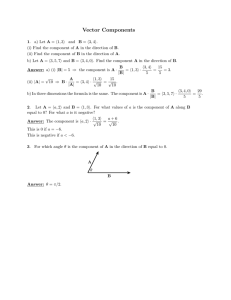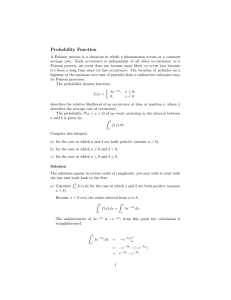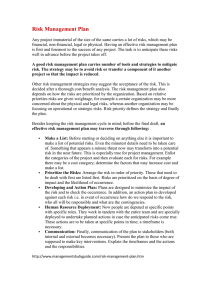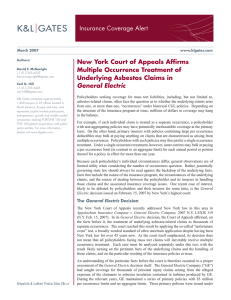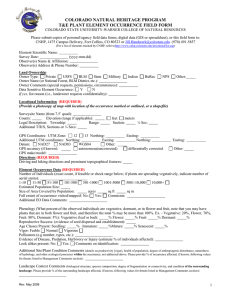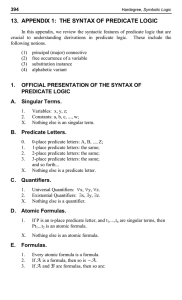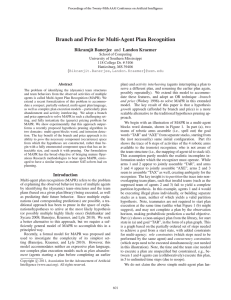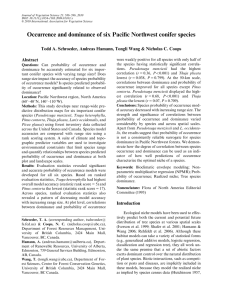Probability Function
advertisement
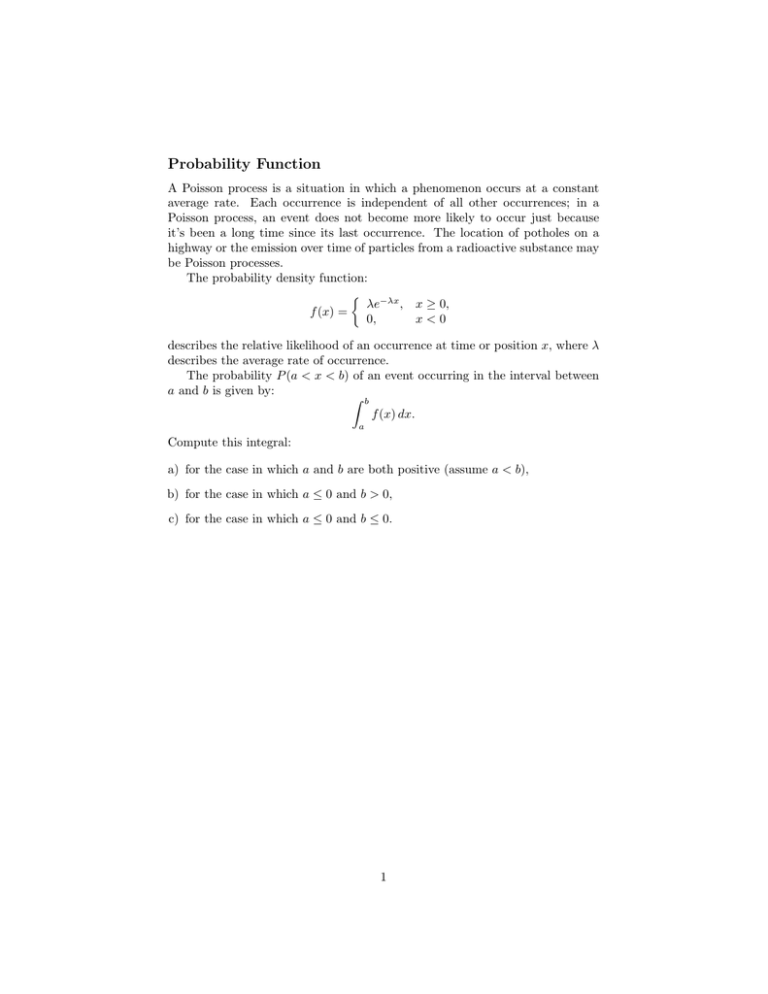
Probability Function A Poisson process is a situation in which a phenomenon occurs at a constant average rate. Each occurrence is independent of all other occurrences; in a Poisson process, an event does not become more likely to occur just because it’s been a long time since its last occurrence. The location of potholes on a highway or the emission over time of particles from a radioactive substance may be Poisson processes. The probability density function: � λe−λx , x ≥ 0, f (x) = 0, x<0 describes the relative likelihood of an occurrence at time or position x, where λ describes the average rate of occurrence. The probability P (a < x < b) of an event occurring in the interval between a and b is given by: � b f (x) dx. a Compute this integral: a) for the case in which a and b are both positive (assume a < b), b) for the case in which a ≤ 0 and b > 0, c) for the case in which a ≤ 0 and b ≤ 0. 1 MIT OpenCourseWare http://ocw.mit.edu 18.01SC Single Variable Calculus�� Fall 2010 �� For information about citing these materials or our Terms of Use, visit: http://ocw.mit.edu/terms.

